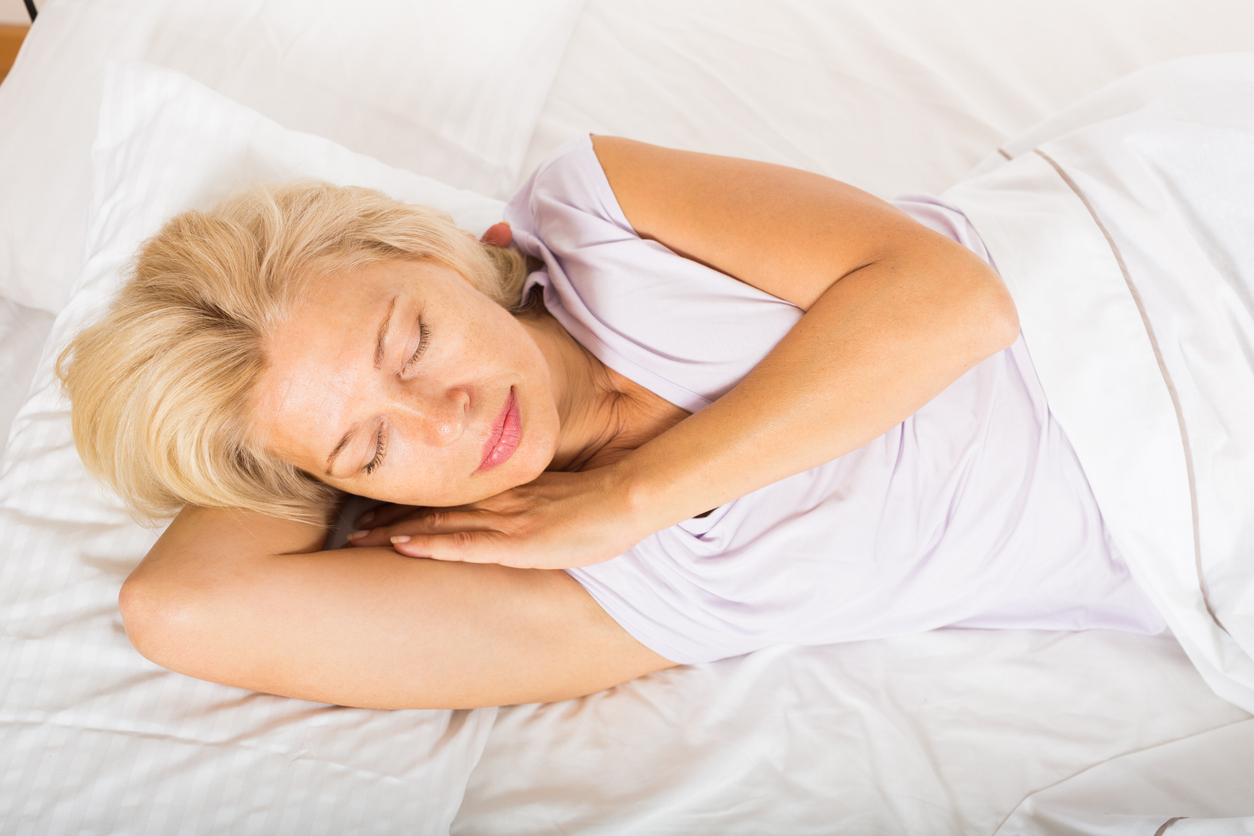How I Detoxed in Just 3 Days [Exact Steps]
Mind + Body
5 Signs You Should Break Up With Social Media
Mind + Body
How I Changed My Entire Life in 365 Days
Motivation
My Morning Matcha Recipe [Bonus Recipes]
nutrition
Browse around
topics
Hey Girl!
Midlife Fitness Coach. Metabolism queen.
I'm Nicolette
I'm going to show you how to use the science of building muscle and healthy lifestyle choices to reignite that metabolic fire and turn back the clock! Read my story
How I Detoxed in Just 3 Days [Exact Steps]
Mind + Body
5 Signs You Should Break Up With Social Media
Mind + Body
How I Changed My Entire Life in 365 Days
Motivation
My Morning Matcha Recipe [Bonus Recipes]
nutrition
Your Special Offer
Tumblr meditation air plant activated charcoal gluten-free. Cornhole chicharrones pabst coloring book woke scenester enamel pin plaid
Your Special Offer
Tumblr meditation air plant activated charcoal gluten-free. Cornhole chicharrones pabst coloring book woke scenester enamel pin plaid
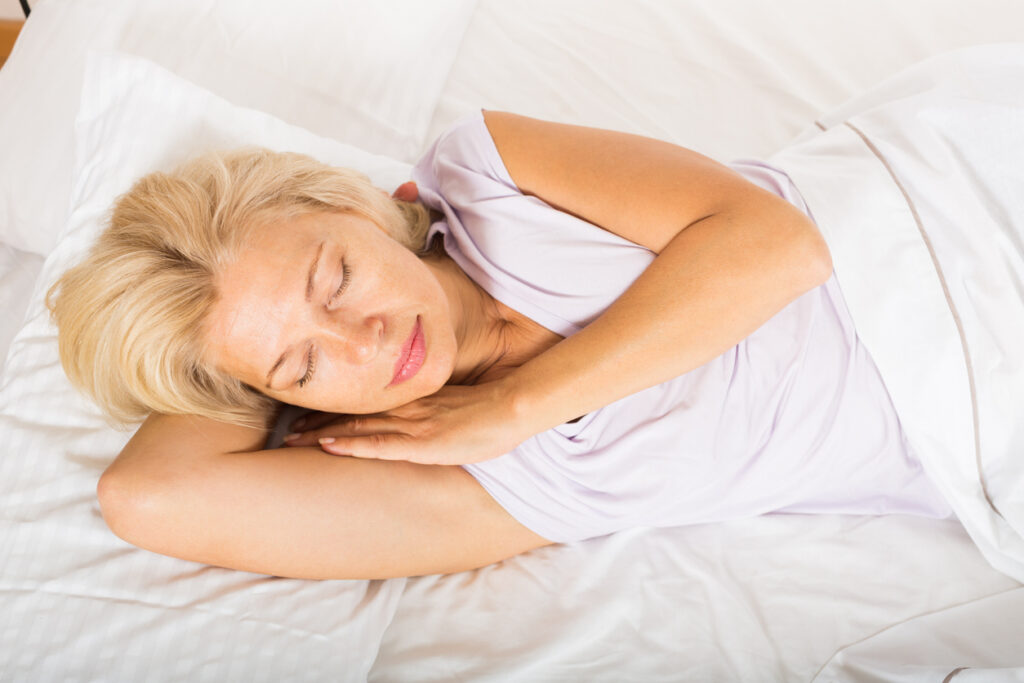
Navigating sleep issues during midlife can feel like a daunting challenge. As I’ve experienced, sleep disruptions around this stage are common and frustrating. When I stumbled upon strategies tailored for midlife women, I realized that a few tweaks can make a significant difference. Simple adjustments to bedtime routines and environment can improve sleep quality dramatically.
I’ve gathered some of the best sleep hacks that cater specifically to women in midlife. They touch on everything from dietary changes to mind-body techniques and creating a calming bedroom environment. These practical tips are easy to incorporate, and they promise better rest and renewed energy for your busy days.
By exploring these sleep hacks, you may discover solutions that help you fall asleep faster, stay asleep longer, and wake up feeling refreshed. Let’s dive into these practical tips and start your journey towards better sleep.
Key Takeaways
- Midlife sleep disruptions are common but manageable with simple strategies.
- Practical changes in routines and environment can improve sleep quality.
- Exploring effective sleep hacks can lead to better rest and more energy.
Understanding Midlife Sleep Challenges
Midlife sleep challenges often relate to hormonal changes and stress. Both of these factors can make it hard to get a good night’s sleep and can affect overall well-being. While HRT (hormone replacement therapy) can help tremendously with this, it is not an option for some women. Other women may need to combine some of these sleep hacks presented in this blog post along with the HRT to get a good night’s sleep.
Hormonal Changes and Sleep
During midlife, hormonal fluctuations, like decreasing estrogen and progesterone, can disrupt sleep patterns. I sometimes experience insomnia or wake up frequently during the night. Menopause can bring hot flashes and night sweats, making it even harder to sleep comfortably.
To manage this, I found that keeping my bedroom cool helps. I also try to go to bed at the same time every night, which has made a big difference. Including supplements such as magnesium and melatonin have made a big difference. If you’re having a tough time with sleep due to hormonal changes, know that you’re not alone.
Stress and Its Impact on Sleep
Midlife often brings new stressors like career changes, family responsibilities, and health concerns. High stress levels can cause insomnia or restless sleep. When I’m stressed, my mind races at night, and it’s tough to wind down.
One thing that helped me is practicing relaxation techniques. Deep breathing and meditation before bed can calm my mind. I also set aside time each day to relax, which keeps my stress in check. It’s important to find what works for you to manage stress and improve sleep. If it’s severe, talking to a professional can provide more tailored help.
Creating a Sleep-Inducing Bedroom Environment
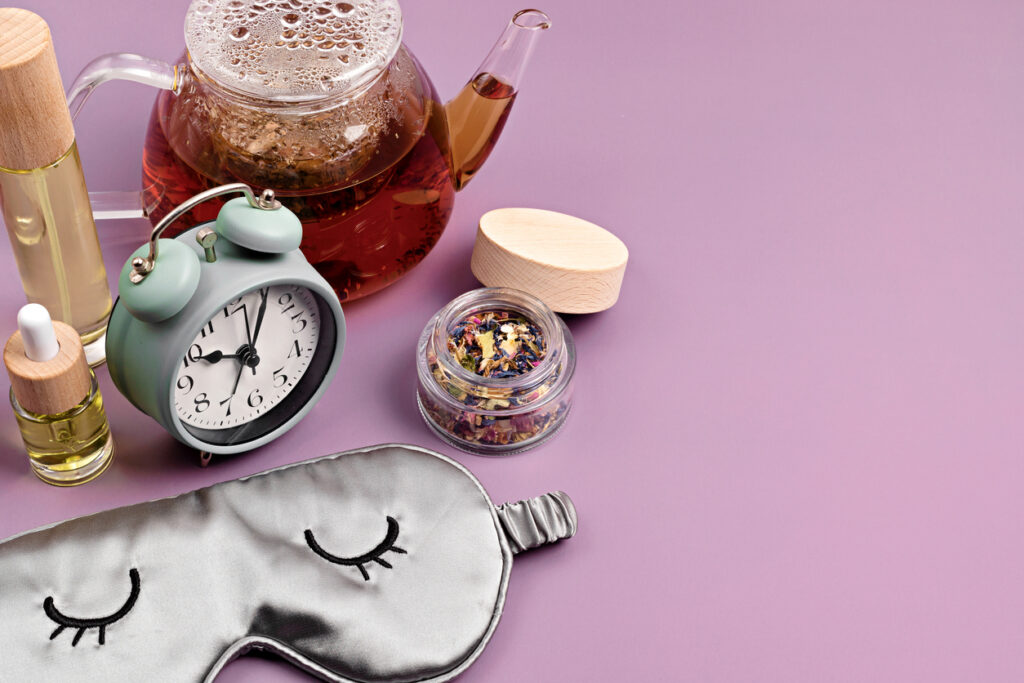
Creating a calming bedroom environment can significantly improve sleep quality. Factors like optimizing your sleep space, choosing the right mattress and bedding, wearing a good sleep mask, and maintaining an ideal room temperature play a big role.
Optimizing Your Sleep Space
First, keep your bedroom tidy. Clutter can cause stress, and stress can make it harder to sleep. I like to keep surfaces like nightstands and dressers clear of unnecessary items.
Lighting is another key factor. Use blackout curtains to block external light and consider dimming lights an hour before bed. Soft, warm lighting is relaxing and can help signal to the brain that it’s time to wind down.
Sound can be a problem too. If noisy neighbors, traffic or my own teenage kids disrupts my sleep, I use a white noise machine or Mack’s wax earplugs. They really help in masking disruptive noise and creating a peaceful ambiance perfect for sleep. For the Mack’s wax earplugs, I take one earplug and tear it in half because one earplug is just too large for my ears. Be sure to cover the entire hole of your ear for it to be effective. I started using earplugs when I first met my husband over 20 years ago because of his snoring. Even though he has his snoring under control now, I’m still addicted to these! I can’t sleep without them!
The Importance of a Comfortable Mattress and Bedding
A good mattress is essential for restful sleep. I prefer one that supports my body well. If your mattress causes any discomfort, it might be time for a new one. I have the Tempur-pedic and it is the BEST bed I’ve ever owned, worth every penny! Typically, mattresses should be replaced every 7-10 years. Full disclosure, I’ve had my Tempur-pedic for almost twenty years and it’s still doing a fine job!
Bedding matters, too. Soft, breathable sheets made from natural materials like cotton or bamboo feel great against my skin. They help regulate body temperature and reduce sweating. I also invest in pillows that match my preferred sleep position, which for me, is a pillow that supports my neck and head in the side sleeping position. Proper support for my neck and spine is crucial for avoiding aches and pains. The Tempur-neck pillow is my absolute favorite pillow! I have a hard time sleeping without this pillow.
The Importance of Wearing a Good Sleep Mask
Sometimes, a sleep mask is a lifesaver. It blocks out residual light that curtains might not catch. This is especially useful if I have to sleep during the day or if there’s a lot of artificial light outside my window.
I look for masks that are soft and comfortable. Some come with adjustable straps to ensure a good fit without being too tight. Materials like silk or cotton are gentle on the skin, reducing the risk of irritation. Trying different styles helps me find the best one that suits my needs and preferences. Check out this one I found on Amazon. It gives adequate space for your lashes!
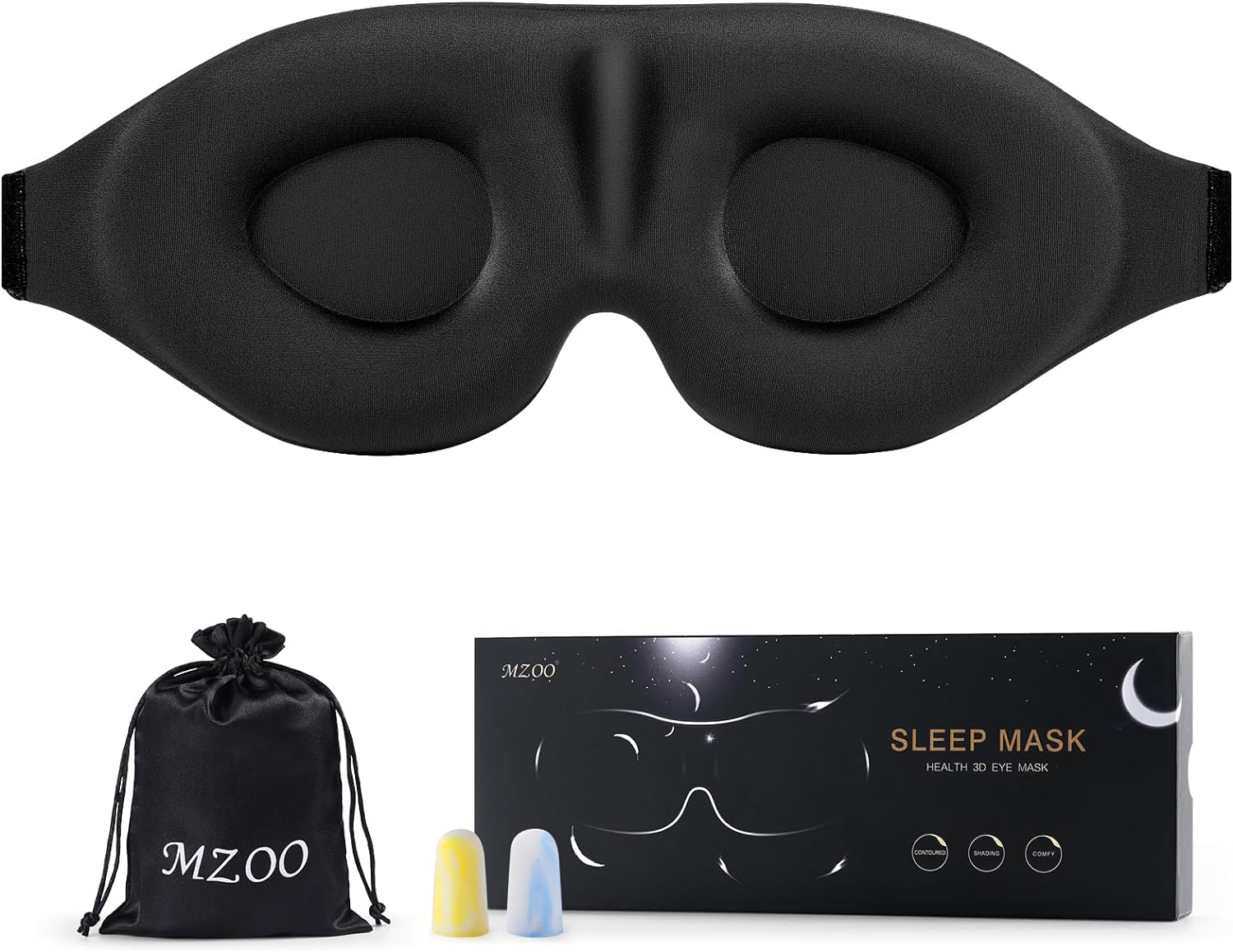
The Importance of Room Temperature and Proper Sleep Wear
Room temperature has a direct impact on sleep quality. I turn my air conditioning down to 68-70 degrees at night (much to my husband’s displeasure)! Every house, insulation and air conditioning unit is different, so you’ll have to experiment with this number and find the temperature that works best for your sleep. I have clients that swear by 65 degrees. But like I said, maybe their house is bigger or air conditioning thermostat is different. This temperature range helps me fall asleep faster and stay asleep longer. If you don’t have air conditioning, fans or open windows can help cool down the space.
Proper sleepwear is also important. I choose lightweight, breathable fabrics like cotton or moisture-wicking materials. They help regulate body temperature and keep me comfortable throughout the night. Avoiding heavy or tight clothing makes a big difference in how comfortably I sleep.
Establishing a Relaxing Pre-Sleep Routine
When I want to wind down for the night, I follow a set of simple, calming activities. These habits help me get to sleep faster and improve my overall rest.
Mindfulness and Meditation
I start by practicing mindfulness or meditation to clear my mind. This helps me let go of any stress from the day. Focusing on my breath or listening to a guided meditation soothes my thoughts.
I often use apps like Calm or Headspace. They offer short sessions that fit easily into my evening. Breathing exercises, such as the 4-7-8 technique, work wonders for me. I inhale for 4 seconds, hold for 7, and exhale for 8. This rhythm slows my heart rate and relaxes my muscles. I just discovered this App… Insight Timer, and it’s amazing for sleep, stress, anxiety, etc.
A Warm Bath or Shower
Next, I take a warm bath or shower. The warmth of the water loosens tension in my muscles. It also raises my body temperature slightly. Once I dry off, my body cools down, signaling to my brain that it’s time for sleep.
Adding Epsom salts or a few drops of essential oils can enhance the experience. Lavender, chamomile, and eucalyptus are my favorites for their calming properties. This simple ritual can make a huge difference in how quickly I fall asleep. Dr. Teal’s Lavendar is my favorite!
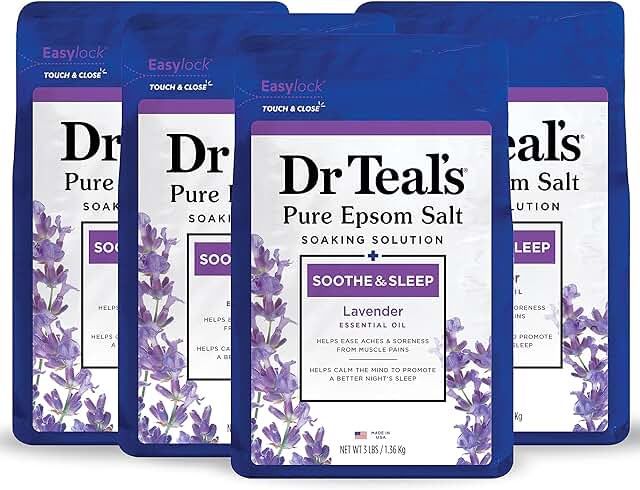
Reducing Blue Light Exposure / Use of blue blockers
I make sure to reduce blue light exposure at least an hour before bedtime. Blue light from screens can interfere with my internal clock. To combat this, I dim the lights in my home and avoid using my phone or computer.
When I do need to look at a screen, I use blue blocker glasses. They help filter out the harmful light. Many devices also have a “night mode” setting that reduces blue light. This practice helps me fall asleep faster and enjoy deeper rest. I have to say, wearing the blue blockers has made a world of difference for me. I’ve tried many types of blue blockers and the ones that work the best are the ones that actually block out most of the blue light. Since I started my digital business. I have had to work on my computer on deadlines well into the evenings, and wearing True Dark blue blockers have been a game changer for me. These glasses pictured below are their Twilights Classic and they block out 99% of blue light. If I am doing any computer work close to bedtime, I put them on.
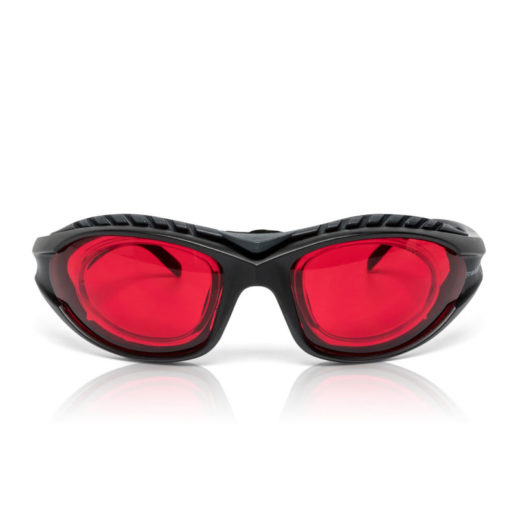
By incorporating these habits, my pre-sleep routine becomes a peaceful transition from the day to a restful night.
Dietary Adjustments for Better Sleep
Eating the right foods and avoiding certain substances before bedtime can significantly improve your sleep quality. Here are some tips for choosing the best foods and what to avoid as bedtime approaches.
Foods That Promote Sleep
Certain foods naturally promote sleep due to their nutrient content. Foods rich in melatonin include milk, pistachios, rice, eggs, fish, mushrooms, tomatoes, peppers, grapes, and strawberries.
Tryptophan is an amino acid found in foods like turkey, chicken, and tofu which helps produce melatonin. Incorporating these into your dinner can help you feel sleepy.
Magnesium-rich foods such as spinach, nuts, and seeds have been shown to improve sleep quality by relaxing muscles and calming the mind.
Avoiding Stimulants Before Bedtime
To sleep better, steer clear of stimulants in the evening. Caffeine, found in coffee, tea, and chocolate, can stay in your system for hours and disrupt your sleep.
Alcohol might make you feel sleepy initially, but it can lead to restless sleep and frequent wake-ups throughout the night. It’s best to avoid alcohol close to bedtime.
Eating large meals late in the evening can make it hard to fall asleep as your body works to digest. Try having a lighter dinner and try not to eat too late at night.
Making these dietary changes can help you enjoy more restful nights and energetic days.
Lifestyle Modifications
Adopting certain lifestyle changes can significantly enhance sleep quality and overall well-being during midlife. Let’s explore how regular exercise and exposure to sunlight can impact our sleep.
Regular Exercise and Sleep Quality
I’ve found that making time for regular exercise can really improve how well I sleep. Engaging in physical activities such as walking, strength training, yoga, or even a short workout can help me fall asleep more easily and stay asleep longer.
Exercise helps regulate our internal body clock, reduces stress, and makes us feel more tired at the end of the day. It’s important not to exercise too close to bedtime though, as this can actually make it harder to wind down.
Even just 30 minutes a day of moderate exercise can make a big difference. On days I workout, especially a heavy strength training day, I’ve noticed more restful and uninterrupted sleep, which is so important for feeling good during the day.
The Role of Sunlight Exposure
Getting enough sunlight during the day has a big impact on my sleep quality. Sunlight helps regulate our natural sleep-wake cycle by controlling the production of melatonin, the sleep hormone.
When I spend time outside in the morning or early afternoon, I feel more alert and energetic throughout the day. Exposure to natural light improves my mood and helps me stay more active.
I try to get at least 15-30 minutes of direct sunlight each day. This simple habit has made a noticeable difference in how well I sleep at night. It’s such an easy and enjoyable way to help my body maintain a healthy sleep pattern.
Mind-Body Techniques
Midlife sleep can benefit greatly from practices like yoga and breathing exercises. These methods can help you relax, reduce stress, and improve sleep quality.
Yoga and Sleep
I find that yoga is a great way to wind down before bed. Poses like Child’s Pose and Legs-Up-The-Wall can be particularly soothing. Child’s Pose helps to release tension in the back and shoulders. This can be helpful if you’ve had a long, stressful day.
Legs-Up-The-Wall is another favorite of mine. It promotes blood circulation and reduces swelling in the legs. Holding this pose for even five minutes can make a noticeable difference in how relaxed I feel.
Consistency is key. Incorporating just 10 to 15 minutes of yoga into my nightly routine has made my sleep much deeper and more restful. If you’re new to yoga, there are many online tutorials that can guide you through these simple stretches. I LOVE this app: Pocket Yoga for simplicity and consistency!
Breathing Exercises for Relaxation
Breathing exercises are another effective way to calm the mind and prepare for sleep. I like to practice deep breathing techniques like the 4-7-8 method.
To do this, I inhale through my nose for 4 seconds, hold the breath for 7 seconds, and then exhale slowly through my mouth for 8 seconds. This pattern helps slow my heart rate and relaxes my nervous system.
Another method I use is alternate nostril breathing. This involves closing one nostril with a finger, inhaling through the other for a count of 3-5 seconds, then swapping nostrils to exhale. Alternating this way promotes a sense of balance and calms my mind.
By incorporating these breathing techniques into my bedtime routine, I experience a more peaceful transition into sleep. They’ve become an essential part of how I get ready for bed each night.
Professional Help and Resources
Getting a good night’s sleep is crucial for your health and well-being. There are professional resources available that can make a significant difference in your sleep quality.
When to Consult a Sleep Specialist
I know that sometimes your sleep problems might feel overwhelming or persistent. If you’ve tried various home remedies and still find yourself tossing and turning, it may be time to get professional help.
Sleep specialists, like Dr. Valerie Cacho, offer personalized advice and treatments. They can diagnose issues like sleep apnea, insomnia, or restless leg syndrome. If you’re waking up exhausted despite a full night’s rest, it might not just be stress; it could be a sleep disorder that needs specific attention.
Don’t hesitate to make an appointment. Early intervention can prevent more severe health issues and improve your daily life significantly.
Utilizing Sleep Tracking and Analysis
Another valuable tool I recommend is using sleep tracking apps and devices. These can provide insights into your sleep patterns and help identify what might be disrupting your rest. Tools like smartwatches or dedicated sleep monitors analyze metrics such as heart rate, breathing, and movement throughout the night. I use the app Sleep Cycle to analyze my sleep metrics. A popular wearable like the Oura ring can track not only your sleep metrics, but other biometrics such as heart rate so you can make adjustments to manage your stress and activity as well.
By understanding these patterns, you can make informed decisions about your sleep hygiene. For example, if you notice frequent awakenings, it could be due to breathing issues or even an uncomfortable mattress. Apps designed to track sleep stages can simplify these insights and help you present accurate data to your doctor, making your consultations more effective and tailored to your needs.
Using these resources will help you take control of your sleep health, ensuring you wake up refreshed and ready for the day.
Strategic Napping
Sometimes, a quick nap can make all the difference in how I feel for the rest of the day. Napping strategically helps me recharge and feel more alert. I don’t nap often, but if for some reason, I did not get a good night’s sleep and I’m sleepy during the day, I may decide to take a short nap.
1. Duration Matters: I aim for 20-30 minutes of nap time. This short length lets me enter the lighter stages of sleep, which can boost my alertness and mood without causing grogginess.
2. Timing Is Key: I time my naps between 1 p.m. and 3 p.m. This is when my energy naturally dips, making it the perfect time to catch some zzz’s. Napping too late can mess up my nighttime sleep.
3. Creating the Right Environment:
- I keep my room cool and dark to fall asleep faster.
- Wearing an eye mask and using earplugs helps block out distractions.
Strategic napping can be a game-changer, especially when I’m feeling sluggish. Small adjustments in my nap routine can have a big impact on my energy levels and overall well-being. Incorporating these tips makes my naps more effective and keeps me going strong throughout the day. If you want to learn more about this, check out more info on mastering the midday recharge.
Supplements and Natural Remedies
I’ve found that using a mix of supplements and natural remedies can really help with sleep during midlife.
Melatonin is a popular option. It helps regulate our sleep-wake cycle. Sometimes, a small dose can make a big difference in falling asleep and staying asleep. As we age, our bodies product less melatonin. I especially LOVE spray melatonin because you can control the dose and even take a mini squirt at 3am if you wake up wide awake! Isagenix Sleep Support is my favorite spray melatonin. Besides melatonin, it has valerian root, chamomile, L-theanine and lemon balm. Lights out with this one!

Another helpful supplement is magnesium. Magnesium has calming properties. It can help relax muscles and reduce stress, making it easier to sleep. One study found that 10 out of 11 apparently healthy women were magnesium-deficient based on the oral magnesium load test. I have found that by taking a magnesium supplement at night, my sleep has improved tremendously. When I forget to take it, I notice the difference. I also recently discovered Pure Magnesium Oil Spray by Life Flo. You can use my code NICOLETTEKFIT to receive 15% of any purchases. This spray is pretty powerful. It provides about 70 mg of elemental magnesium for every 4 sprays. I spray it on the bottom of my feet at night.

I also like chamomile tea before bed. Chamomile can have a soothing effect and help with sleep. The process of making and drinking the tea can also be quite calming.
Valerian root is another herb that’s known to help with sleep. Using it in either capsule form or as a tea can be beneficial. The Isagenix Sleep Support spray has Valerian root and chamomile in it along with melatonin so I do not need to take these separately.
Sometimes I turn to lavender for its calming aroma. I might use a lavender-scented pillow spray or add lavender essential oil to a diffuser. It’s simple but effective.
Here are some supplements and remedies I often use:
| Supplement/Remedy | Benefits |
|---|---|
| Melatonin | Regulates sleep-wake cycle |
| Magnesium | Calms muscles, reduces stress |
| Chamomile | Soothes and calms |
| Valerian Root | Promotes better sleep |
| Lavender | Calms with aroma |
By mixing and matching these remedies, you can find what works best for you. It’s about trying different things and seeing what your body responds to.
Frequently Asked Questions
Getting quality sleep during midlife can be challenging. Below, I address some common questions that many women in their 50s have, with tips and strategies to help you get the rest you need.
What are some effective sleep strategies for women in their 50s?
Reducing blue light exposure before bed can improve sleep quality by promoting melatonin production. Managing your room’s temperature and creating a calming pre-sleep ritual, like reading or listening to soothing music, can also help.
How much sleep is recommended for a woman during her midlife years?
Aim for 7-8 hours of sleep each night to feel rested. This helps with keeping energy levels up and supporting overall health. Consistency in sleep and wake times can also help you sleep better.
What can help a midlife woman sleep through the night without interruptions?
Factors like hot flashes and night sweats are common. Using breathable bedding and keeping your room cool can make a difference. Herbal teas or magnesium supplements may also ease nighttime disruptions.
Are there specific relaxation techniques that promote better sleep for women in midlife?
Practicing deep breathing exercises or mindfulness meditation before bed can calm the mind. Gentle yoga stretches or progressive muscle relaxation can also help you unwind and prepare for restful sleep.
How does a woman’s sleep pattern change in her 50s, and how can she adapt?
Sleep patterns can shift due to hormonal changes during menopause, often leading to lighter sleep. Listening to your body and finding a sleep schedule that works best for you is key. Naps can be helpful if nighttime sleep is insufficient.
What are the best practices for deep sleep for women in their midlife stage?
Creating a dark, quiet, and cool sleeping environment can promote deep sleep. Limiting caffeine and alcohol intake, especially in the evening, is also beneficial. Daily exercise and getting out in the sunlight for 30 minutes a day can contribute to getting deeper, more restorative sleep.
Pin
Share
Leave a Reply Cancel reply
6 Ways To Start Your Morning Off Right
Mind + Body
Chia Seed Recipes For Keto
NUTRITION
My Morning Matcha Recipe [Bonus Recipes]
nutrition
How I Changed My Entire Life in 365 Days
Motivation
5 Signs You Should Break Up With Social Media
Mind + Body
Mind + Body
How I Detoxed in Just 3 Days [Exact Steps]
You May Also
Previous Story
next Story
© 2024 NICOLETTE K FIT Metabolism + Strength Coach. Site by Sugar Studios
Interested in learning about all things Muscle, Metabolism & Midlife?
SIGN UP FOR MY NEWSLETTER!
Join Me on Insta
I'm so glad you're here, stick around!
xo Nicolette
